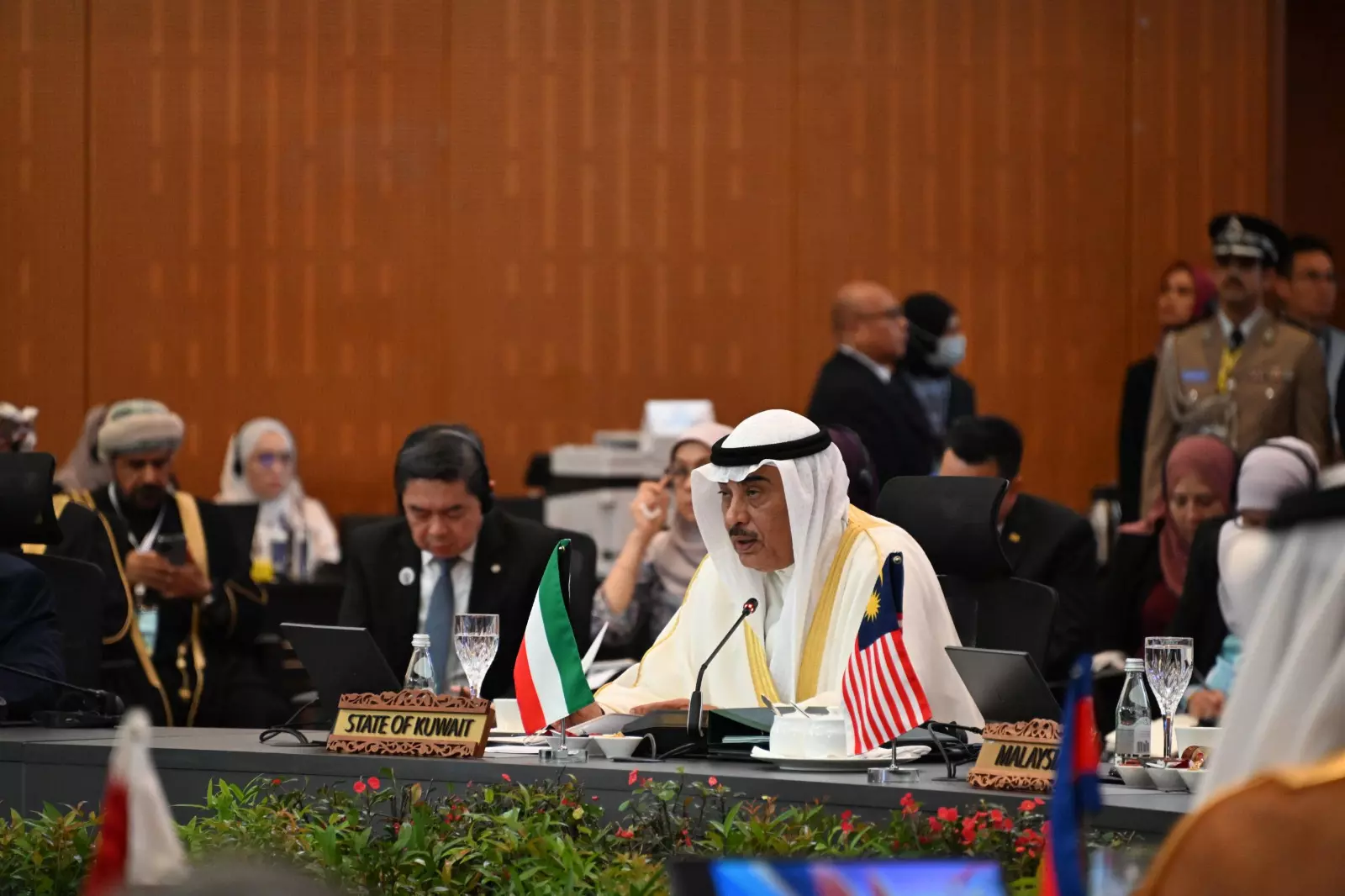
GCC, ASEAN, China forge deeper ties at trilateral summit in Kuala Lumpur
text_fieldsKuwait: Leaders from the Gulf Cooperation Council (GCC), the Association of Southeast Asian Nations (ASEAN), and China gathered in Kuala Lumpur on Sunday for a landmark trilateral summit aimed at enhancing strategic cooperation across economic, technological and geopolitical sectors.
The summit was co-chaired by His Highness the Crown Prince of Kuwait Sheikh Sabah Khaled Al-Hamad Al-Sabah, representing His Highness the Amir Sheikh Meshal Al-Ahmad Al-Jaber Al-Sabah, alongside Malaysian Prime Minister Anwar Ibrahim and Chinese Premier Li Qiang. The gathering marked a significant step forward in trilateral diplomacy, reflecting a shared commitment to multilateralism, sustainable development and regional stability.
In his opening remarks, Sheikh Sabah Khaled conveyed greetings from the Amir of Kuwait and praised Malaysia’s hospitality and summit organization. He described the summit as a turning point, evolving from earlier milestones such as the first GCC-China Summit in Riyadh in 2022 and the inaugural GCC-ASEAN Summit in 2023. He stressed that the current global environment, marked by economic volatility and environmental challenges, demands deeper cooperation and resilient partnerships.
Sheikh Sabah Khaled underlined the relevance of established frameworks, including the Joint Action Plan for Strategic Dialogue with China (2023-2027) and the Strategic Cooperation Framework with ASEAN (2024-2028), which guide collaborative efforts in renewable energy, artificial intelligence, education and healthcare. Economic figures validates this momentum, with 2023 trade volumes between the GCC and China reaching approximately USD 298 billion, and foreign direct investment flows amounting to USD 19 billion. Trade with ASEAN exceeded USD 122 billion, reflecting the strength and potential of these regional ties.
The Kuwaiti Crown Prince urged swift action on pending initiatives, including the finalization of a Free Trade Agreement between the GCC and China, the removal of trade barriers, and the reinforcement of platforms such as the ASEAN-GCC-China Economic Forum to drive innovation and infrastructure development.
He also called for joint efforts to address global challenges such as food and water security and the need for clean energy solutions, positioning the trilateral cooperation as a crucial driver of innovation and sustainability. Sheikh Sabah Khaled outlined five core pillars for future collaboration: trade and investment integration, food and energy security, technological advancement, cooperation in education and health and unified positions on global issues.
Addressing regional conflicts, he condemned the humanitarian crisis in Gaza, reaffirmed the GCC’s support for the Palestinian cause and advocated for a renewed peace process based on international law and the Arab Peace Initiative. He also welcomed recent developments in Syria and expressed support for preserving its sovereignty and stability.
In closing, Sheikh Sabah Khaled emphasized the importance of effective implementation mechanisms to transform summit resolutions into actionable outcomes, stating that the gathering must lead to real progress and shared prosperity.
The summit was widely seen as a defining moment in Gulf-Asia relations, laying the groundwork for deeper economic integration, strategic alignment and multilateral diplomacy among three of the world’s most dynamic regions.


















